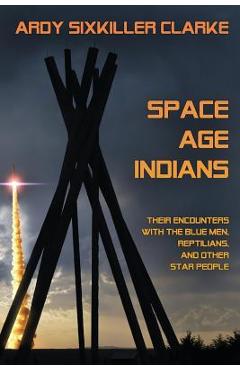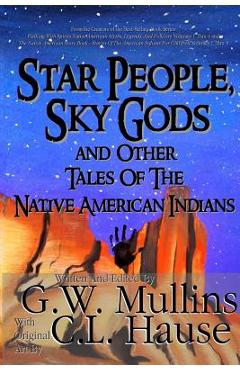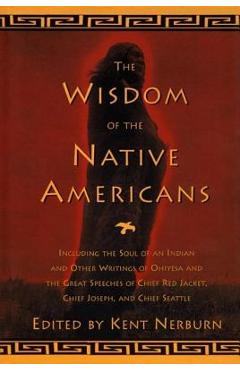Indians and Other Misnomers of the Upper Great Lakes: The True Indigenous Origins of Geographic Place Names - Phil Bellfy

Detalii Indians and Other Misnomers of
libris.ro
128.71 Lei
160.89 Lei
Foreign Language Study
Phil Bellfy
Indians and Other Misnomers of - Disponibil la libris.ro
Pe YEO găsești Indians and Other Misnomers of de la Phil Bellfy, în categoria Foreign Language Study.
Indiferent de nevoile tale, Indians and Other Misnomers of the Upper Great Lakes: The True Indigenous Origins of Geographic Place Names - Phil Bellfy din categoria Foreign Language Study îți poate aduce un echilibru perfect între calitate și preț, cu avantaje practice și moderne.
Preț: 128.71 Lei
Caracteristicile produsului Indians and Other Misnomers of
- Brand: Phil Bellfy
- Categoria: Foreign Language Study
- Magazin: libris.ro
- Ultima actualizare: 25-10-2024 01:12:27
Comandă Indians and Other Misnomers of Online, Simplu și Rapid
Prin intermediul platformei YEO, poți comanda Indians and Other Misnomers of de la libris.ro rapid și în siguranță. Bucură-te de o experiență de cumpărături online optimizată și descoperă cele mai bune oferte actualizate constant.
Descriere magazin:
No less than 27 out of the 50 states\' names in the USA are based in American Indian languages. Additionally, six out of 13 of Canada\'s provinces and territories have names with indigenous origins, and, of course, Canada itself is derived from an indigenous source. Shakespeare quipped, What\'s in a name? A lot, it turns out, because states like California and Florida reflect their Spanish history; here, in the Great Lakes, that history is indigenous. If you have an understanding of the name of a place, its history may reveal itself. And that history will, most likely, enrich your own life and your place in it. Join us on this journey through Michigan, Pennsylvania, Ontario, Ohio, Indiana, Illinois, Wisconsin, and Minnesota as we alphabetically traverse indigenous place names in each locale. Alternately, you can peruse an alphabetical concordance of every place name. In the appendices, you\'ll discover details of US and Canadian treaties with indigenous people, and many that are still under dispute today Emeritus Professor Phil Bellfy has used his life-long Indigenous knowledge to produce this imaginative, original work that will be indispensable to any researcher working on Indigenous studies in the Great Lakes watershed. Indians and Other Misnomers of the Upper Great Lakes will be in the forefront of changing the way in which Indigenous knowledge shapes the hitherto colonial narrative of the Great Lakes. David T. McNab, professor emeritus, York University, Toronto, Ontario. Indians and Other Misnomers of the Upper Great Lakes is a fascinating exploration of the Indigenous origins of many place names bordering the Great Lakes. This book offers readers the opportunity to contemplate their place within the landscape of the Indigenous homelands now claimed by the Canadian and American settler states. It is a must-own companion book for researchers, residents and anyone interested in the places, history and linguistic heritages of the Great Lakes. --Karl Hele, Anishinaabeg and the Davidson Chair in Canadian Studies, Mount Allison University Words carry meaning and history. In this Indians and Other Misnomers of the Upper Great Lakes, Dr. Phil Bellfy takes us on an etymological journey around the Great Lakes region as he explains the possible origins and meanings of Native American place names. This book helps paint a relational picture of the cultural world of the Anishinaabe Three Fires Confederacy of Ojibway, Odawa, and Potawatomi and how that view has b

Produse asemănătoare

Space Age Indians: Their Encounters with the Blue Men, Reptilians, and Other Star People - Ardy Sixkiller Clarke
![]() libris.ro
libris.ro
Actualizat in 25/11/2024
138.55 Lei

American Indian Stories, Legends, and Other Writings - Zitkala-sa
![]() libris.ro
libris.ro
Actualizat in 25/11/2024
84.32 Lei

More Star People, Sky Gods And Other Paranormal Tales Of The Native American Indians - G. W. Mullins
![]() libris.ro
libris.ro
Actualizat in 25/11/2024
92.52 Lei

Star People, Sky Gods and Other Tales of the Native American Indians - G. W. Mullins
![]() libris.ro
libris.ro
Actualizat in 25/11/2024
92.52 Lei
Produse marca Phil Bellfy

Indians and Other Misnomers of the Upper Great Lakes: The True Indigenous Origins of Geographic Place Names - Phil Bellfy
![]() libris.ro
libris.ro
Actualizat in 25/10/2024
128.71 Lei

